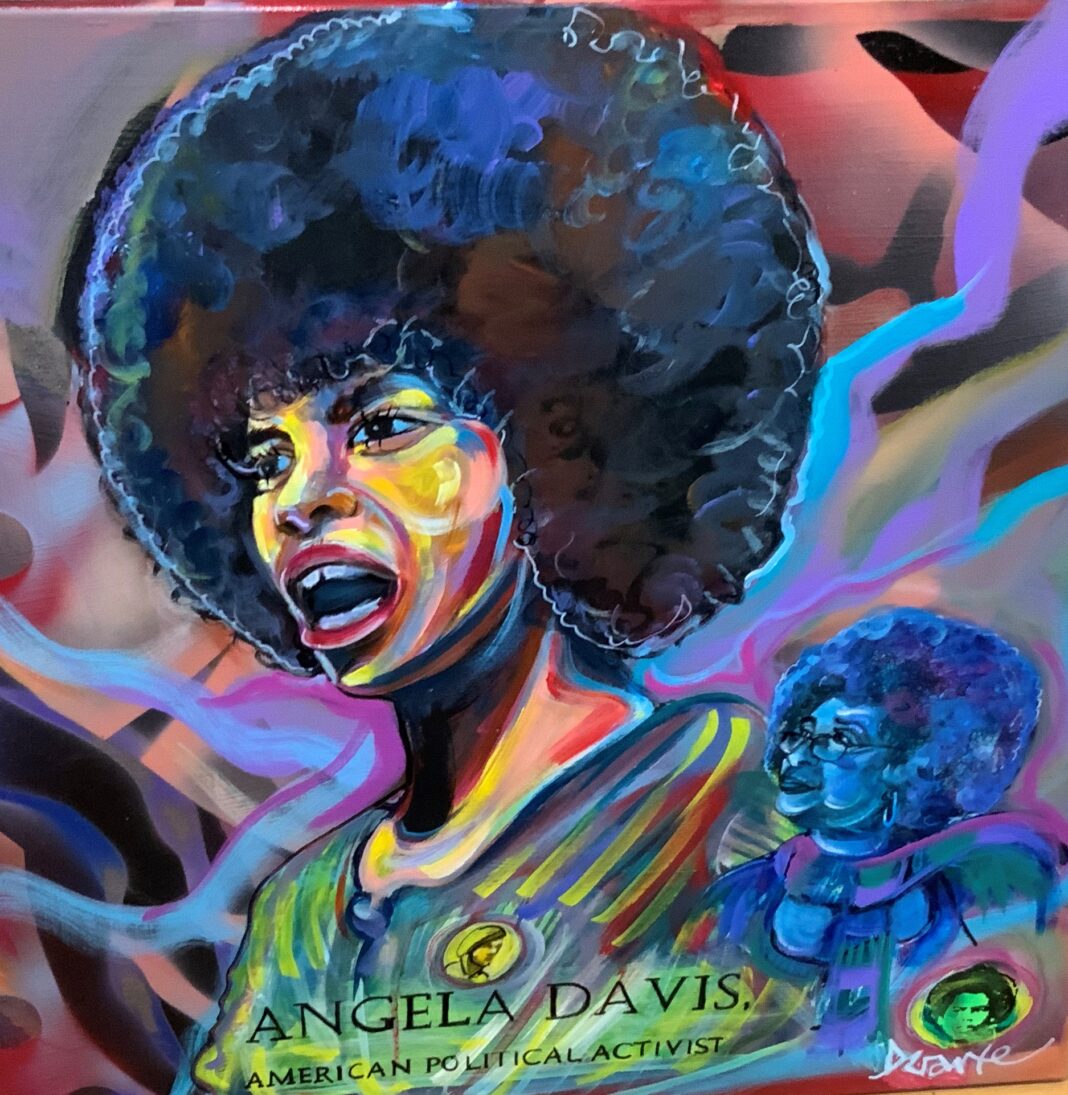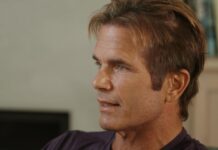From the critically-acclaimed Ohio composer who brought the world the history of pre-colonial Afrika and the Black Holocaust, comes the latest addition to Dr. Mark Lomax II’s life’s work with the release of his seventh album in the 12-album cycle known as 400: An Afrikan Epic, which was released in 2019. The composition contains over 8.5 hours of music, is composed of soul-moving sounds of drums, strings, woodwinds, and piano.
The new album, entitled Four Women, a collection of musical portraits honoring the contributions of four women whose lives reflect the complexity of being both Black and Woman in the context of Western imperialism.
In collaboration UCelli: female Cello quartet and commissioned by the the Johnstone Fund for New Music, Four Women is a multidimensional work providing a dynamic musical experience and illustrated through graphical portraits of each woman by artist Richard Duarte Brown, who created paintings of each woman that help connect her identity with her story.
Meeting the “Four Women”
Queen Nzinga (1583-1633) of the Mbundu people (present-day Angola) successfully led her people in a 30-year war against Portuguese colonization by showcasing her military prowess and high-stakes diplomacy.
Ida B. Wells Barnett (1862-1931) overcame seemingly insurmountable odds to become a force for justice by leading the anti-lynching movement and the fight for women’s rights.
Angela Davis (1944- ) came to prominence during the civil rights movement as a symbol of Black Power. She is a scholar, activist, author, and lecturer who has fought tirelessly for human rights around the world.
Chimamanda Ngozi Adichie (1977- ) asserts that we spend too much time teaching children gender-specific behaviors and attitudes. The Nigerian-born author, lecturer, and self-proclaimed feminist advocates non-gender-specific humane, innate abilities that enable people to enrich their communities.
“These women,” said Dr. Lomax. “I chose four that exemplify womanism in a way that was unapologetic, and frankly, bad-ass. They made their mark on the world because they refused to be anything other than who they are. Their stories need to be told, and this composition celebrates examples of the power that derives from the most authentic expression of Humanity.”
True Hollywood Talk spoke with Dr. Lomax about how Four Women came together and the effect it will soon have on the music industry at large. It is Dr. Lomax’s belief that now, more than ever, we need to elevate the stories of Afrika and the diaspora as a means of reclaiming the narrative about Blackness in addition to “our ancient history and the truth that our enslavement was a disruption of over 100,000 years of history, not the beginning of it.
The intersectional nature of how race, class and gender impacts the daily lives of Afrikan women in America is often an under-reported face which makes who they are in the world that much more powerful.”
True Hollywood Talk: When did you know Four Women was finished?
Dr. Mark Lomax: I knew Four Women was a finished piece when the Ancestors stopped singing to me. It’s like when an author completes a book. The story had come to a logical and satisfying conclusion.
THT: How does this new work play into the enormous curriculum you are continuing to build out for today’s youth?
Dr. Mark Lomax: This piece continues my efforts to uplift and educate through my art. My hope is that students of all ages will be encouraged to learn more about Queen Nzinga, Ida B. Wells, Dr. Angela Davis, Chimamanda Ngozi Adichie, and so many other women of Afrika and the diaspora who have made major contributions to the world.
Representation is important to the mental health and efficacy of Black girls everywhere, and a balanced narrative that places the achievements of Black women in America and around the the world in their proper context is just the right thing to do.
THT: Do you plan on releasing these compositions on vinyl?
Dr. Mark Lomax: Not right now. Vinyl is expensive and there isn’t a huge demand for it among my listeners. We have thought about releasing the full cycle on vinyl as a commemorative set in the future.
THT: Let’s talk about the emotions behind this work, for you and everyone involved. Spill!
Dr. Mark Lomax: Growing up, I was active as a professional musician very early in life (12 years old!). Everyone seemed cool with hiring me and even with me hanging around as long as it served their purposes. As soon as I started hearing music my own way, I began to be marginalized, even ostracized at every level of activity.
People literally just stopped hiring me at that stage of my development. Instead of working to appease them, I focused on becoming as authentic an artist as possible which made school difficult as well. Composition professors always asked whether I would choose to be a classical musician or a “jazzer” (derogatory term for jazz musician), and church musicians were concerned that my soul was being tainted by the world, because I refused to ONLY play gospel music. I never thought I needed to choose. I feel I am privy to all of the musical traditions from Afrika to Europe and the U.S.
As such, the 400: An Afrikan Epic cycle is really the amalgam of all of those influences and is a metaphor for how we connect at the level of our collective humanity to make the world a better place. Specific to the recording sessions, there were some emotionally heavy days. The whole studio was in tears when we recorded Ma’afa, a ballet set on a slave ship. On the other hand, recording Four Women was a celebration! It was fun and jubilant because we knew that these are important stories to tell. There was absolute trepidation as to whether or not I’d be able to complete the project and even some apprehension before its released as you never know how something like this would be received, but I made a promise to the Ancestors to share this epic story with the world and to bring people together through the music.
We are doing just that!
THT: What can the industry look forward to next from you?
Dr. Mark Lomax: We’re planning the release of a documentary about the 400 project, I’ve written a book about leveraging our collective power in a human-centered way to make the world a more just, equitable, and inclusive place for all, and I’ve already planned my next 10 albums!
You can follow Dr. Mark Lomax on social media, or join his mailing list by visiting his website.









